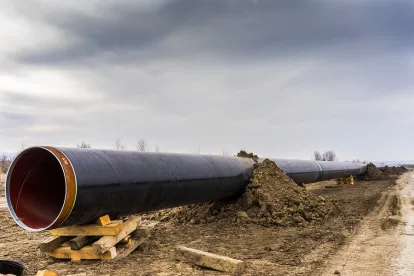In a recent opinion, the D.C. Circuit suggested the Federal Energy Regulatory Commission (FERC) must attempt to obtain information necessary to evaluate the environmental effects of a proposed interstate pipeline project due to the project’s effect on natural gas production and consumption. In Birckhead v. FERC, USCA Case No. 18-1218 (D.C. Cir. 2019), the court criticized FERC for failing to obtain and consider information about upstream production and downstream consumption in its National Environmental Policy Act (NEPA) review of a proposed project to add compression to an existing pipeline, even though the applicant was unlikely to have information regarding the origin and destination of the gas to be transported. The court indicated that FERC has an obligation to at least request information about upstream and downstream activities from pipeline applicants, and suggested that, under the decision in Sierra Club v. FERC, 867 F.3d 1357 (D.C. Cir. 2017), FERC may be required to consider the environmental effects of those activities as indirect effects of FERC’s pipeline approval.
Although the court dismissed the petition on procedural grounds, Birckhead offers important insights into the D.C. Circuit’s interpretation of FERC’s NEPA obligations under the Supreme Court’s opinion in Department of Transportation v. Public Citizen, 541 U.S. 752 (2004) and the D.C. Circuit’s own Sierra Club opinion. When discussing Sierra Club’s application to the facts of Birckhead, the court concluded that emissions for downstream gas combustion (1) are not always a reasonably foreseeable indirect effect of a pipeline project but (2) could be reasonably foreseeable even when the project is not constructed to ship gas to a specific destination market or end user. In addition, when addressing FERC’s argument, based on Public Citizen, that downstream greenhouse-gas emissions need not be considered because FERC only has jurisdiction over the pipeline, the court found that FERC could have denied the certificate application based on the environmental impacts associated with non-jurisdictional entities that produce or receive the gas transported by the pipeline.
In Sierra Club, the D.C. Circuit had held that “FERC must either quantify and consider the project’s downstream carbon emissions or explain in more detail why it cannot do so.”1 In Birckhead, the court further explained that FERC must at least attempt to obtain the information necessary to assess the proposed project’s environmental effects from the applicant before concluding that it cannot quantity such emissions. Pipeline applicants can expect that project opponents will squarely raise the issue in future challenges and that FERC will be more likely to ask applicants for such information in the future.
Before certificating a pipeline project under Section 7 of the Natural Gas Act, FERC must conduct an environmental review of the project under NEPA, which considers both the direct and “reasonably foreseeable” indirect effects of the project.2 In order to issue the certificate, FERC must find that the project is in the public interest, after “balanc[ing] the public benefits against the adverse effects of the project, including adverse environmental effects.3
Birckhead concerned FERC’s approval of a project to increase the capacity of an existing interstate natural gas pipeline by adding compression to the system. FERC conducted an environmental assessment of the proposed compressor stations but did not assess the potential environmental impact of increased upstream gas production and downstream gas combustion that may be indirectly caused by the construction of the project. FERC believed that such potential impacts did not qualify as indirect effects because they were not reasonably foreseeable.
Regarding upstream gas production, the applicant was unlikely to know the source of natural gas shipped, and FERC found that there may have been other routes for the gas to be transported to reach the market, even if the project was not approved. Thus, FERC believed any effect on natural gas production by the project was speculative. The court acknowledged that the record did not show that FERC’s approval would indirectly cause an increase in upstream production, because it contained no information that would allow FERC to “predict the number and location of any additional wells that would be drilled as a result of the production demand created by the Project,” or that showed shippers would be unable to bring their gas to market without the project. But the court suggested that FERC could and should have asked for that information, stating that it was “dubious of the Commission’s assertion that asking [the pipeline] to provide additional information about the origin of the gas would be futile.”
Regarding greenhouse-gas emissions and other environmental impacts related to downstream gas consumption, FERC argued that it was not required to assess such environmental impacts because the destination and end user(s) of the gas were unknown. Thus, FERC could not assess whether the project would increase emissions or be used to offset emissions from other fuel sources that may have a more significant impact on the environment, thus resulting in a net reduction in impacts. The court said that it was “troubled … by the Commission’s attempt to justify its decision to discount downstream impacts based on its lack of information,” stating that “NEPA … requires the Commission to at least attempt to obtain the information necessary to fulfill its statutory responsibilities.”4 Nonetheless, since the petitioner did not claim that FERC’s failure to ask for such information was a violation of NEPA, the D.C. Circuit denied the petition.
[1] 867 F.3d at 1375.
[2] See Sierra Club, 867 F.3d at 1371; 40 C.F.R. § 1508.8(b).
[3] Sierra Club, 867 F.3d at 1373.
[4] Italics in original.




 />i
/>i

